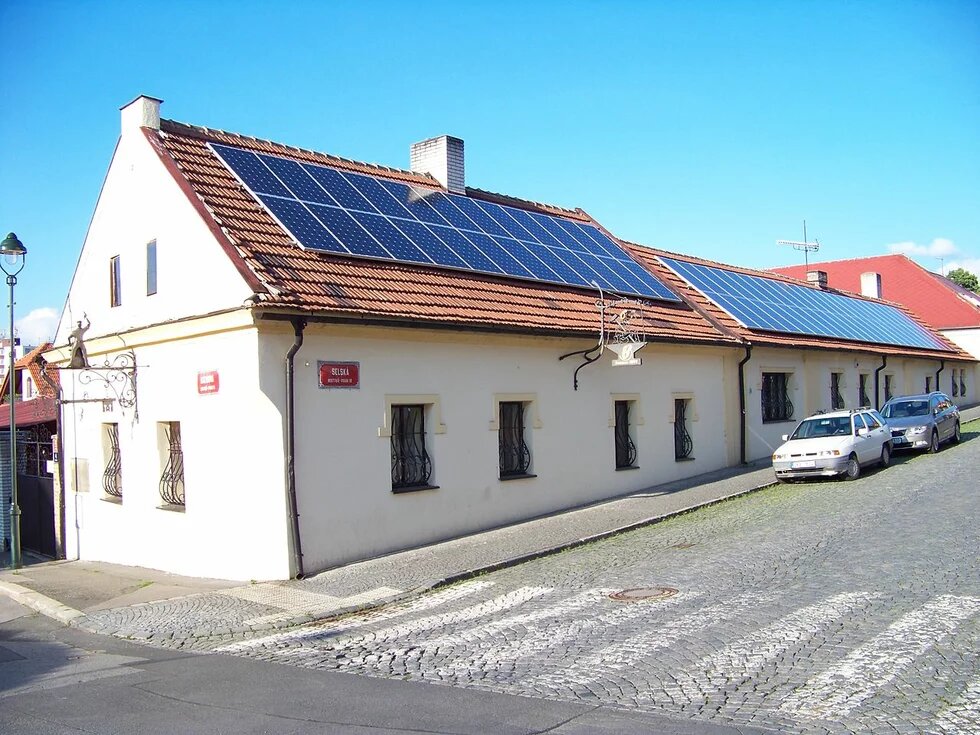
Clean energy sources are reducing Germany’s dependence on fossil fuels and nuclear power, and are creating new jobs. Renewables play an important role in supporting employment during an economic recession, and in building energy independence in Europe. It is precisely for this reason that the Czech Republic should take note of the rising trajectory of clean energy in Germany.
A rational way forward
Support for renewables in the Federal Republic has been stable since the early 1990s. German politicians are not contemplating merely an increase in installed output of wind, solar and biomass energy, but also a transformation of the power transmission system to make green energy easily available to consumers. Changes in purchase prices are debated at a round table, where clean power operators, politicians, regional representatives and consumers are represented. While this is perhaps common practice in Germany, the Czech Republic still needs to develop to such a state of affairs. Despite a gradual decline in state support, the ability to reach agreement on changes thus guarantees sufficient support for the further growth of green energy with reasonable electricity prices for consumers.
Another important element in the German energy transformation is a change in ownership. The dynamic growth in green energy sources is shifting electricity production closer to consumers; to a large extent, power plants are owned by families, farmers and small entrepreneurs, rather than by multinational companies. With a view to the future, the state is thus helping to offset the risk to consumers of increases in the price of electricity generated from fossil fuels and nuclear energy.
Alongside green energy sources, Germany also emphasises increased energy efficiency. The Czech Republic is not the only country which can find inspiration in the German plan to use revenues from the sale of emissions allowances after 2013 to modernise buildings. Germany is gradually renovating the homes of millions of families who pay high sums for heating and electricity.
The Czech way backward
The Czech energy sector is influenced mainly by the position of energy company ČEZ. Through the active support of previous governments, the majority-state-owned company has achieved what may be called a dominant position. This is reflected today in influence in the formulation of state energy policy, which foundered in support for nuclear and coal, restrictions on renewables and inconsistent support for energy conservation. Clean energy experienced a bright moment in the Czech Republic in 2005, when MPs approved a law on support for renewables inspired by the German system. The introduction of support launched the growth of wind, biomass and gradually also solar energy sources, which today cover ten per cent of domestic energy consumption.
There was a snag in solar energy, however. In 2010, when there was a sharp decline in the price of photovoltaic technology, legislators did not manage to amend the law to reduce the level of support. This was followed by a strong negative campaign by ČEZ against renewables, which the power company alleged were increasing the price of electricity. In fact, however, green energy accounts for only about 10 per cent of the final electricity price, while other regulated components (such as the fee for distribution) amount to as much as 35 per cent. Nevertheless, this experience is also reflected in a mistrustful posture toward the German decision to eliminate nuclear energy.
Today’s right-wing government headed by Petr Nečas is preparing an energy plan which calls for an increase in the nuclear component from 35 per cent to 50 per cent, while allowing renewables to grow to a mere 15 to 20 per cent. The Czech Republic is in danger of becoming technologically isolated. If ČEZ builds new reactors at Temelín, they will come on line around 2025, but by then wind and solar power will be economically more attractive than electricity from new reactors. Long-term, clean energy sources could cover up to two-thirds of today’s demand for electricity, according to conservative estimates. And there are also great opportunities to modernise buildings using thermal insulation.
The absence of a vision in the Czech Republic?
The Czech Republic can also find inspiration in a well-considered strategy of long-term goals. The German government bases its vision on a range of studies and calculations. In the Czech Republic, however, sustainable long-term economic policies have thus far been elaborated only by non-governmental think tanks. The official energy policy only contemplates developing large-scale conventional resources. But exploiting renewables or increasing energy efficiency can provide a needed impulse for domestic industry (which consumes much more energy than in the countries of the original EU-15), reduce consumption of fossil fuels, and reduce the negative impacts on human health and the environment. The Czech Republic does not need more nuclear energy anyway; at present, we export up to 17 TWh of electricity, which is more than Temelín produces in a year.
Better times may be on the horizon, however. With the help of market research agency SC&C, the Alliance for Energy Independence asked people what kind of energy they want. An overwhelming majority would welcome more solar panels on the roofs of buildings, small hydroelectric plants and thermal biomass conversion plants supplemented by wind or biofuel stations. The public supports the gradual attenuation of coal energy and the restriction of mining to coal and uranium. What will happen depends in particular on the willingness of Czech politicians to emancipate the country from its dependence on energy company ČEZ, and on their ability to learn and draw inspiration from the German experience. A new (clean) industrial revolution has begun with a decision by Germany.
Martin Sedlák works as the Executive Director of the Alliance for Energy Independence